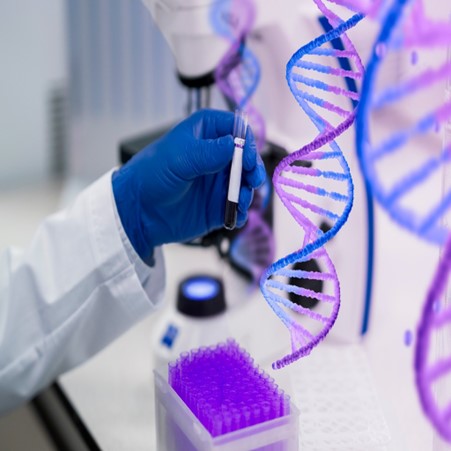Preimplantation Genetic Screening PGS involves checking the chromosomes of embryos created using in vitro fertilization (IVF) or intracytoplasmic sperm injection (ICSI) for any abnormalities. Typically, over 50% of embryos produced by a woman will be chromosomally abnormal and incapable of achieving a pregnancy or a healthy livebirth.
PGS enables the selection of the ‘normal or Euploid’ embryo(s) for transfer giving the woman a much higher chance of achieving a pregnancy and livebirth. With age the probability of having a ‘euploid’ embryo for transfer decreases.
Candidates for PGS
- Couples who have had a previous pregnancy with aneuploidy
- Women who have had two or more miscarriages
- Women who have experienced previously failed embryo implantation
- Women diagnosed with unexplained infertility
- Women older than age 35
- Women who have undergone numerous unsuccessful fertility treatments
Why is PGS helpful?
One of the most common reasons that an embryo transfer does not result in a pregnancy is due to abnormal embryo genetics. PGT can ensure that the embryo selected for transfer has the correct number of chromosomes, thereby reducing the chances for a failed IVF cycle and reducing the chance of miscarriage.
The Benefits of PGS
1. Improved embryo selection
The goal of PGS is to increase the likelihood that your selected embryo(s) will lead to a successful, healthy conception for your future family. PGS testing reduces the risk of miscarriage, decreases the time it takes to become pregnant, and lowers the need for transferring multiple embryos. While there is often additional cost to perform PGS, it can often decrease the price of your IVF journey in the long run by decreasing the number of transfers necessary to conceive.
2. Prevent genetic transmission of unknown abnormalities
PGS dose not test for specific diseases but instead looks for chromosomal abnormalities, such as the number and position. By performing PGS on your viable embryos, your fertility doctor can select chromosomally normal embryos and rule out those that would prevent a healthy birth, even if they appear high-quality before screenings.
However, if one or both intended parents have a known genetic disorder such as cystic fibrosis, preimplantation genetic diagnosis (PGD) is a better option for you.
3. Optimized chance of a successful pregnancy
PGS gives your fertility doctors insight into which embryos will be most likely to implant and develop healthily. If your embryos display specific abnormalities that prevent the transferred embryo from implanting within the uterus or developing during its early stages, your doctor can identify and abstain from transferring these embryos to optimize your IVF process.
Still, some chromosomal abnormalities are less harmful to the embryo and allow it to implant. These can still prevent pregnancy from developing correctly and can lead to pregnancy loss or a child’s birth after the embryo transfer.
5. Quicker time to pregnancy
PGS help avoid unsuccessful embryo transfers by transferring the healthiest embryos first. By understanding which embryos will help you achieve a full-term pregnancy, you can ensure you are not spending months transferring embryos that won’t lead to a successful pregnancy and birth.
6. Less uncertainty
A significant benefit of PGS is the reduced level of uncertainty patients may experience before and after the embryo transfer. PGS provides you with an ensured healthy embryo, a lower risk of pregnancy loss, and less emotional stress, especially for patients who’ve experienced miscarriage before.








